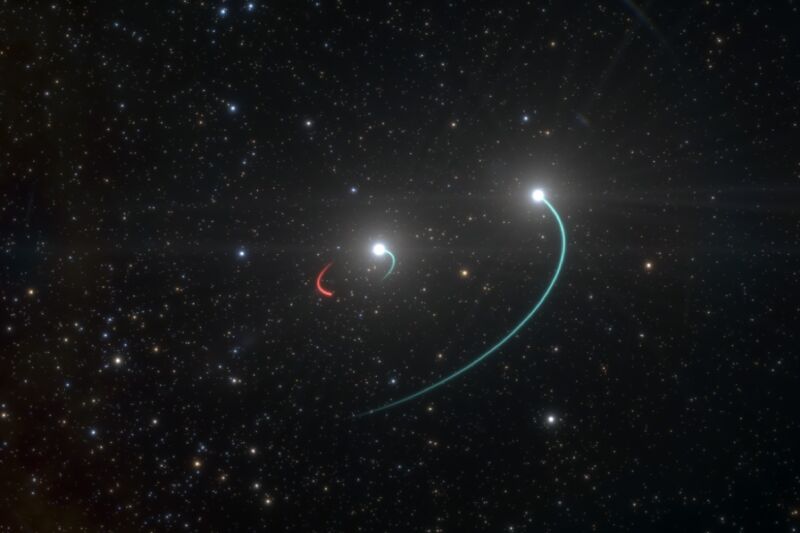Astronomers have discovered closest black hole yet in trinary star system

Enlarge / Artist's impression showing orbits of the objects in the HR 6819 triple system. There is an inner binary with one star (orbit in blue) and a newly discovered black hole (orbit in red), as well as a third star in a wider orbit (also in blue). (credit: ESO/L. Calcada)
Astronomers with the European Southern Observatory (ESO) have discovered a black hole that is the nearest such object yet found, just 1,000 light years away-close enough to be seen with the unaided eye. It is part of a triple star system, dubbed HR 6819, and the ESO scientists believe other members of this class of systems may also harbor black holes that previously were not a high priority for black hole searches. They announced their discovery in a new paper published in the journal Astronomy and Astrophysics.
Scientists think there are far more black holes in the Universe than we have discovered to date-probably hundreds of millions of them, given the age of our Universe-because we can't observe them directly; we can merely infer their presence by their effect on surrounding matter. A black hole's gravitational effects can influence the orbits of nearby stars, for example, or infalling matter can form an accretion disk of hot gas rapidly orbiting the black hole, emitting powerful X-rays. Or an unfortunate star will get too close to a black hole and be torn apart for its trouble, with the infalling remnants also accelerating and heating up to emit X-rays into space.
But the majority of black holes are actually quiet and hence very difficult to detect. This latest discovery offers useful clues about where at least some of the truly dark black holes might be hiding. "One will never get enough telescope time to do a thorough search like that on all objects," ESO scientist Thomas Rivinius, a co-author on the paper, told Ars. "What you need to do is a staged approach to help you identify candidates, then thin out the candidates list, and only then have a close and detailed look at the remaining ones. Knowing what to look for should put us in a better position to find them."
Read 9 remaining paragraphs | Comments